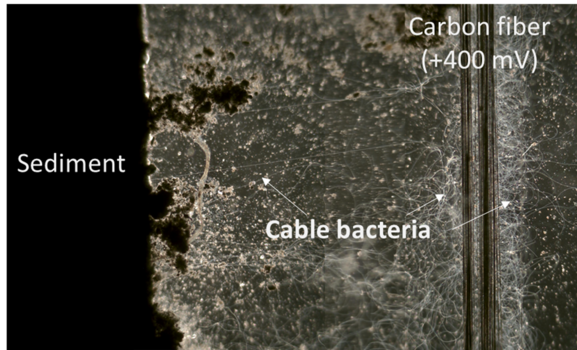Cable bacteria are centimetre-long, filamentous, multicellular bacteria present ubiquitously in freshwater and marine sediments, and participate in long-distance electron transfer by coupling the oxidation of sulphide in anoxic sediment to the reduction of oxygen. Cable bacteria possess an internal electric grid, enabling them to transport electrons over centimeter-scale distances.
These experiments might inspire novel methods to cultivate cable bacteria, besides also offering other applications like bioremediation and biosensing.
This mechanism might potentially uncover an unknown mode of oxygen production and lead to a new understanding of oxygen transport through the oxic-anoxic interface.

The Marie Skłodowska-Curie Actions fund excellent research and innovation and equip researchers at all stages of their career with new knowledge and skills, through mobility across borders and exposure to different sectors and disciplines. The MSCA help build Europe’s capacity for research and innovation by investing in the long-term careers of excellent researchers.The MSCA also fund the development of excellent doctoral and postdoctoral training programmes and collaborative research projects worldwide. By doing so, they achieve a structuring impact on higher education institutions, research centres and non-academic organisations. The MSCA promote excellence and set standards for high-quality researcher education and training in line with the European Charter for Researchers and the Code of Conduct for the recruitment of researchers.